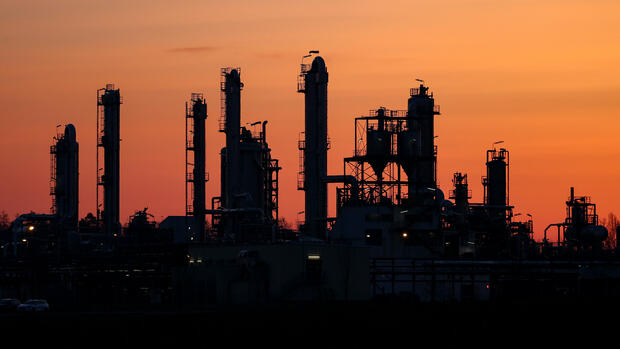According to the industry association VCI, the industry is in a deep crisis.
(Photo: dpa)
Frankfurt The German chemical industry further reduced its production in the second quarter for cost reasons. The hope of a recovery must be postponed in view of increasing weak demand, said the industry association VCI on Thursday when presenting its economic report. VCI President Markus Steilemann renewed the call for internationally competitive electricity prices and deregulation.
According to the VCI, the industry is in a deep crisis. Because of the economic downturn and the poor outlook, customers have been ordering very few new chemicals and plastics for months. Instead, they are clearing out their warehouses, which they filled with preliminary products last year out of fear of further massive price increases. A turning point does not seem to have been reached yet.
On the other hand, chemical companies continue to burden themselves with high costs for energy and raw materials, which they used to cover themselves last year. At the same time, the sales prices for their products have been falling sharply for months.
The traces are clear: Between April and June, sales were 15 percent below the comparable figure from the same quarter of the previous year, while production fell by eight percent. Weak domestic business was particularly noticeable, where sales fell by more than a fifth, while abroad there was a decline of almost eleven percent.
>> Also read: Systemically relevant or dispensable? What threatens the economy if the basic chemicals migrate
If you exclude the comparatively stable pharmaceutical division, chemical production even fell by 14.2 percent. The facilities were only at 77.3 percent capacity. The aim is usually a value of around 85 percent.
According to the association, companies expect the business situation to deteriorate further in the second half of the year. However, the VCI has not further revised down the forecast it lowered in July. A decline in production of eight percent is expected for the year as a whole; without the pharmaceutical business, there could even be a decline of eleven percent.
The chemical industry association is calling for political support.
(Photo: dpa)
Given the immense locational disadvantages, it is more than questionable whether and to what extent the industry will be able to benefit from a global upswing in the future. “The situation is serious and the mood is correspondingly bad,” said Steilemann, according to a statement.
According to the VCI, at least when it comes to the number of employees, the tense economic situation is not yet noticeable. The number of jobs was stable at 477,000 in the second quarter. Many companies want to retain their workforce due to the shortage of skilled workers.
But the pressure to cut costs through job cuts could increase. Individual companies are already on the agenda for hiring freezes or short-time work in particularly affected areas. These include, above all, the very energy-intensive production in basic chemicals. Some companies have already announced permanent production shutdowns and the relocation of investments abroad, and others could follow, according to the VCI.
Economists warn of the consequences of a migration of energy-intensive industries. “A possible emigration could have painful effects on the economy,” said Jasmin Gröschl, senior economist at credit insurer Allianz Trade. The chemical and metal industries generate around 20 percent of the industrial value added in Germany and are home to 16 percent of the industrial workforce. “They are among the “The most research-intensive industries and, on average, produce more innovations than companies in other industries,” said Gröschl.
More: What the chemical crisis says about German industry
